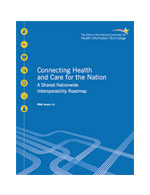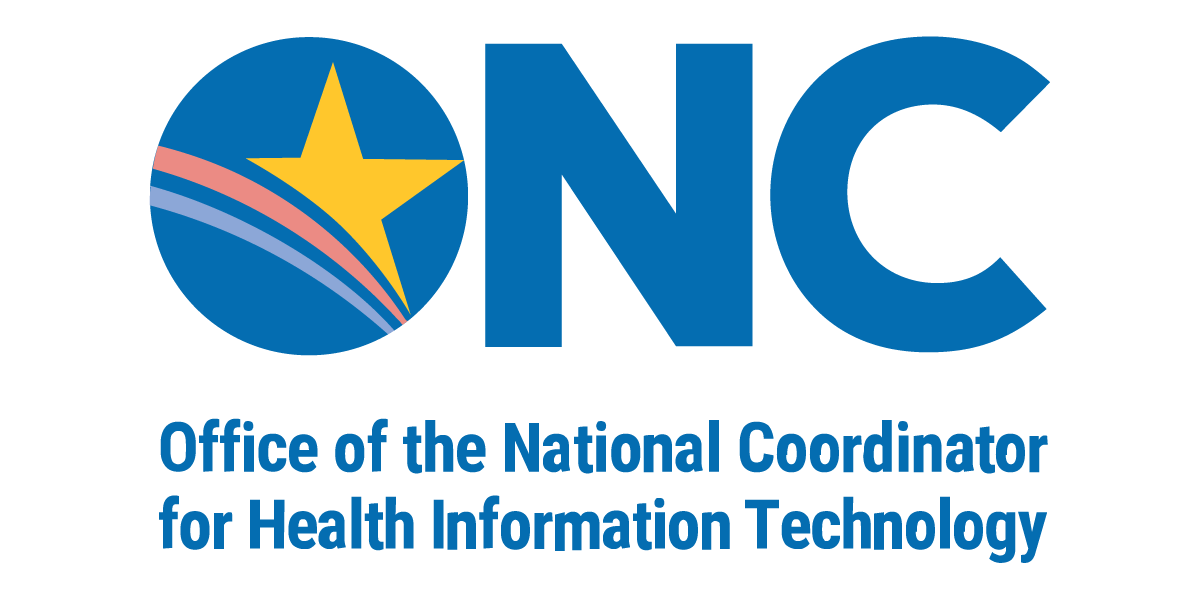 ONC accepted public comments on Connecting Health and Care for the Nation: A Shared Nationwide Interoperability Roadmap Draft Version 1.0. The comment period ended on April 3, 2015.
ONC accepted public comments on Connecting Health and Care for the Nation: A Shared Nationwide Interoperability Roadmap Draft Version 1.0. The comment period ended on April 3, 2015.
The draft Roadmap proposes critical actions that need to be taken by both private and public stakeholders to advance the nation towards a more connected, interoperable health IT infrastructure and was drafted by ONC based on input from private and public stakeholders. The draft Roadmap outlines the critical actions for different stakeholder groups necessary to help achieve an interoperable health IT ecosystem.



Interoperability Comments
Association of American Physicians & Surgeons
The Association of American Physicians & Surgeons (“AAPS”), founded in 1943, is a nonprofit membership organization devoted to protecting the practice of private, ethical medicine for the good of patients. Our motto is “omnia pro aegroto,” which means “all for the patient.” We represent members in virtually every specialty and State.
We respectfully submit these comments in opposition to the Connecting Health and Care for the Nation: A Shared Nationwide Interoperability Roadmap Draft Version 1.0 (“Interoperability Roadmap”).
We urge the government to scale back its proposals and not expand into this field. The free market can work amazingly well when allowed to do so. The market for smart phones is a shining example of how much free enterprise and technology can achieve for the public with little or no regulation by government. Likewise, systems for managing medical data are more likely to develop faster and with more efficient results in the absence of government involvement. The free market can better achieve the goals for patients and the medical community.
In addition, States have proper jurisdiction over medical care and it would be an intrusion on state sovereignty for the federal government to expand into this area. Our system of federalism has worked well in many areas of life, including medical care. Federal involvement with respect to medical data would be unwise, would increase the risk of privacy violations while impeding progress that can be made at the state and local level. AAPS urges restraint by the federal government.
AAPS objects in particular to federal government interference with stronger privacy laws at the state level. The Interoperability Roadmap complains about the “variations in state law and variation in policies that organizations voluntarily adopt, make the environment complex” (p. 129). There should be variations in state law. That is how our system of federalism works best, and the federal government should not be trying to remove those variations.
AAPS also has serious concerns about the impact that the Interoperability Roadmap will ultimately have on medical office expenses. By and large, electronic medical records have increased costs significantly, reduced privacy, and led to some devastating medical errors. Perhaps even worse, electronic medical records repeatedly take time away from physicians’ caring directly for patients.
Electronic medical records are often riddled with errors, rendering the goal of interoperability one of dubious value, or even harmful. Repetition and reliance on errors is detrimental to patient care. One study found that less than half of electronic medical records were completely accurate. See Drs. Weiss, Kumata, Galar, and Turkish, American Academy of Ophthalmology 2014 Annual Meeting: Abstract PO081. Presented October 19, 2014.
If the federal government proceeds with its Interoperability Roadmap, then there should be greater emphasis on transparency with respect to conflicts of interest in the electronic systems and standards. There should also be greater focus on what is best for patients, not intermediaries or hospitals. The patient should come first, both in medical care and in any federal standards relating to medical care.
Finally, AAPS supports and incorporates herein the superb comments previously submitted by the Citizens’ Council for Health Freedom.
Andrew L. Schlafly
General Counsel
Association of American Physicians & Surgeons
NASL
The National Association for the Support of Long Term Care (NASL) is a trade association representing both vendors of health information technology (IT) with full clinical and point-of-care IT systems and providers of care for the long term and post-acute care (LTPAC) sector. NASL appreciates the opportunity to offer the attached comments on the Shared Nationwide Interoperability Roadmap (DRAFT Version 1.0).
nasl_comments_for_onc_interop_roadmap_final_04.03.15.pdfElectronic Health Record Association
We are pleased to submit the attached comments on ONC’s Ten Year Interoperability Roadmap on behalf of our nearly 40 member companies which serve the majority of hospitals and ambulatory care settings using electronic health records (EHRs) to provide safer, more effective care to their patients. We applaud the general collaborative approach that the Office of the National Coordinator for Health IT (ONC) suggests to create and maintain this Roadmap.
ehra_response_to_onc_re_interoperability_roadmap.pdfHealth IT Now
Attached, please find Health IT Now's comments on the Roadmap.
2015-04-03_draft_hitn_onc_roadmap_final.pdfCenter for Health Law and Economics
Attached.
chlecommentoncroadmap.docxAttached Comments
2015_onc_interoperability_roadmap_-_cdisc_comments.docxCerner Corporation
Please find attached Cerner's comments.
We appreciate the opportunity to provide feedback.
cerner_response_to_onc_roadmap.pdfI am very opposed to this. It proposes to repeal federal law that allows state legislatures to enact true medical privacy laws for citizens. It views patient data as public property rather than personal property. It has uses of data that many patients will not accept.
Dasypring Family Health Center
Feel like C1 and C4 are out of sync
D2.2 - Unclear - what does this mean?
D2.5-8 – Assumes provider have any sway at all with vendors
Biggest consumer issue is that more than poor infrastructure and lack of electronic education, we need a culture change in order to even see the importance of electronic access and exchange of information in the public realm.
Palo Alto Medical Foundation
I strongly support the stated goals